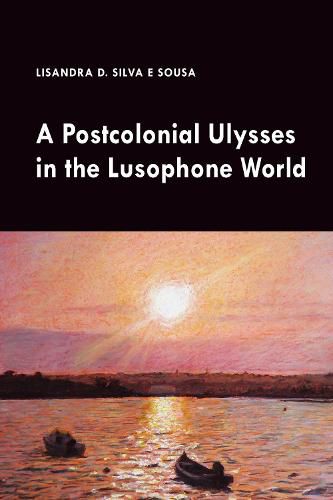Readings Newsletter
Become a Readings Member to make your shopping experience even easier.
Sign in or sign up for free!
You’re not far away from qualifying for FREE standard shipping within Australia
You’ve qualified for FREE standard shipping within Australia
The cart is loading…






This book investigates the spaces of interaction between Portuguese and Brazilian modernists-specifically Oswald de Andrade, Augusto de Campos and Haroldo de Campos, Ronald de Carvalho, Antonio Ferro, Fernando Pessoa, Mario de Sa-Carneiro-and their interpretation of nation. Most importantly, the way in which their work echoes and transfigures the Ulysses myth, to be termed Portuguese Ulyssism by Brazilian Gilberto Freyre in his reading of Luis Vaz de Camoes’s epic poem The Lusiads, is analyzed, underlining the presence of a postcolonial Ulysses in the Lusophone world. The trope of the shipwreck is central to the creative production of these Atlantic modernists who, outside of their respective national literatures, interact beyond the territories of nation-states through texts on exile, national identity, and colonialism.
In addition to the renowned The Lusiads, the texts studied include two issues of the Luso-Brazilian quarterly Orpheu (1915) and Antonio Ferro’s contributions to Brazil’s Klaxon (1922, in celebration of the centenary of Brazil’s political independence from Portugal); Oswald de Andrade’s Anthropophagic Manifesto (1928) and an unpublished letter to Ferro; Fernando Pessoa’s poem Ulysses in Message (1934); and Haroldo de Campos’s Galaxies (1984) and Finismundo: The Last Voyage (1997). In A Postcolonial Ulysses in the Lusophone World, relocations and transfigurations of the Ulysses myth inform a dialogue between the modernists of Portugal and Brazil through texts on exile, national identity, and colonialism.
$9.00 standard shipping within Australia
FREE standard shipping within Australia for orders over $100.00
Express & International shipping calculated at checkout
This book investigates the spaces of interaction between Portuguese and Brazilian modernists-specifically Oswald de Andrade, Augusto de Campos and Haroldo de Campos, Ronald de Carvalho, Antonio Ferro, Fernando Pessoa, Mario de Sa-Carneiro-and their interpretation of nation. Most importantly, the way in which their work echoes and transfigures the Ulysses myth, to be termed Portuguese Ulyssism by Brazilian Gilberto Freyre in his reading of Luis Vaz de Camoes’s epic poem The Lusiads, is analyzed, underlining the presence of a postcolonial Ulysses in the Lusophone world. The trope of the shipwreck is central to the creative production of these Atlantic modernists who, outside of their respective national literatures, interact beyond the territories of nation-states through texts on exile, national identity, and colonialism.
In addition to the renowned The Lusiads, the texts studied include two issues of the Luso-Brazilian quarterly Orpheu (1915) and Antonio Ferro’s contributions to Brazil’s Klaxon (1922, in celebration of the centenary of Brazil’s political independence from Portugal); Oswald de Andrade’s Anthropophagic Manifesto (1928) and an unpublished letter to Ferro; Fernando Pessoa’s poem Ulysses in Message (1934); and Haroldo de Campos’s Galaxies (1984) and Finismundo: The Last Voyage (1997). In A Postcolonial Ulysses in the Lusophone World, relocations and transfigurations of the Ulysses myth inform a dialogue between the modernists of Portugal and Brazil through texts on exile, national identity, and colonialism.